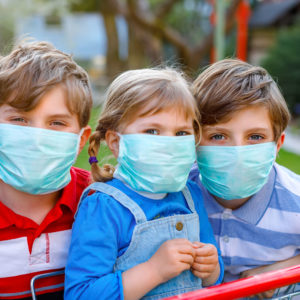Editor’s Note: For another viewpoint, see Point: Keeping Schools Closed Will Do More Harm Than Good
In the midst of the greatest threat to public health in our lifetimes, Senate Majority Leader Mitch McConnell and his Republican colleagues are proposing to grant schools, businesses and healthcare providers immunity from coronavirus-related lawsuits for any and all claims arising from December 2019 through 2024.
Under their plan, students, faculty and other staff would be barred from holding schools (and a broad range of businesses) liable for harm even when they fail to take reasonable precautions to keep people safe.
Although the plan purports to allow claims for gross negligence or intentional misconduct, it would set onerous pleading standards that effectively bar those claims as well.
In short, McConnell’s proposal shields careless schools. It would allow these schools to cause harm and escape all accountability. By contrast, schools that act responsibly to keep people safe will face both fewer claims and have significant defenses to liability — they don’t need the McConnell bill.
It’s important to remember that the coronavirus can be spread by infected people showing mild or no symptoms at all. In the case of one isolated cruise ship, 59 percent of the passengers tested positive for COVID-19; yet among those 128 positive cases, more than four out of five were asymptomatic.
In terms of spread of the virus, college classrooms and cafeterias are like cruise ships on land: enclosed spaces, with lots of people, spending much time together every day.
Student groups, sensing the threat to their health and safety, already are springing into action against McConnell’s proposal.
In mid-July, the People’s Parity Project, a national network of law students from 50 schools, announced a mobilization opposed to McConnell’s immunity proposal and sent a letter of opposition to the Senate.
Corporate immunity “would let schools reopen without critical safety measures in place, putting students, campus workers and the broader community at risk,” Harvard law students Nicole Rubin and Sarah Tansey cautioned.
These students understand what the proponents of the Senate bill, in their eagerness to help big companies, overlook: A means of holding schools accountable is crucial to ensuring that they take adequate precautions.
Utah, for example, passed a state-level immunity provision in May. The very next day, a local paper reported that one Salt Lake City employer told employees not to follow public health guidelines and even required employees who had tested positive for COVID-19 to report to work. Nearly half later tested positive.
A similar incident occurred in March at Liberty University in Lynchburg, Virginia. The school flouted public health guidelines; a local outbreak followed.
Shockingly, Department of Education Secretary Betsy DeVos insisted that anything less than five days a week of in-person instruction would be unacceptable to her and threatened to cut federal funding for K-12 public schools that don’t meet her expectations.
Her threat takes exactly the wrong approach. Without additional funding, schools won’t have adequate protective gear, cleaning supplies and ventilation systems to keep students and staff safe.
House Democrats passed a coronavirus relief bill in May that included $90 billion to help schools cover the costs of cleaning, transportation and new technology. And Senate Democrats are backing legislation that would provide $175 billion for K-12 schools to purchase protective equipment, keep students spaced apart in classrooms and improve virtual learning.
More funding and clear, enforceable, science-based safety standards are the way to get kids back to school while protecting against transmission of the coronavirus.
McConnell’s plan to make schools immune from accountability when they don’t take reasonable precautions would endanger students, staff and their families.
A national health crisis is no time to give a free pass to schools that are lax about safety.

